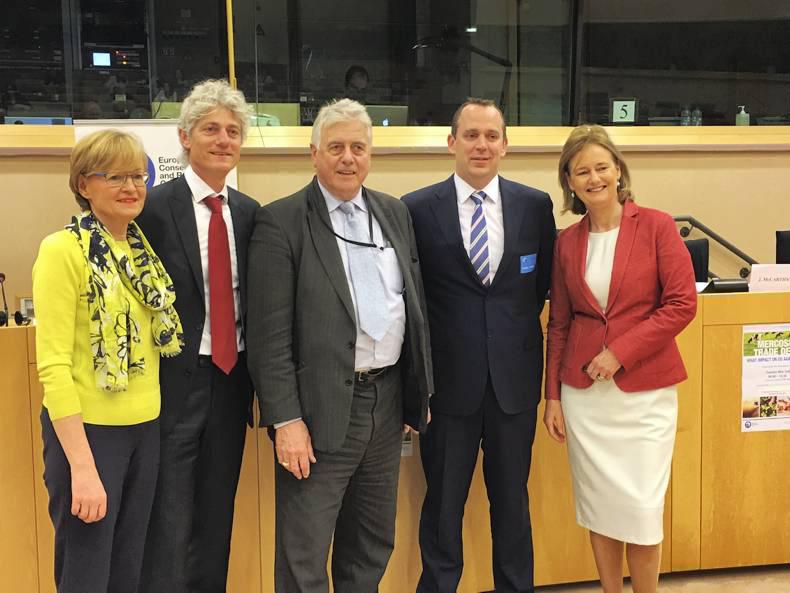The presentation was organised by Ulster Unionist MEP Jim Nicholson and was given to the European Conservatives and Reform Group in Brussels on Tuesday.
McCarthy exposed the poor production and traceability standards of Brazilian beef coming into Ireland in his former role as livestock editor of the Irish Farmers Journal. He referenced this in his speech, adding that the 78,000t quota included as part of the deal with Mercosur countries would “squeeze out indigenous EU production”.
“The simple fact is that the EU cannot absorb any more beef on top of the 50,000 tonnes agreed with Canada and the expectation of an offer to the US in TTIP negotiations,” he said.
McCarthy added that “it is not as if the EU is currently closed to Mercosur countries”, referencing the 48,000t tariff-free Hilton high-quality beef quota, of which Mercosur countries can use up to two-thirds.
"We cannot tie one hand behind farmers’ backs, and then expect them to compete on a global market" Justin McCarthy @farmersjournal #mercosur
— NFUs in Brussels (@NFUsInBrussels) May 3, 2016
He also highlighted the potential of Mercosur countries to increase their production levels.
“Brazil, for example, has increased its beef output by 45% in the past 15 years with 25% more cattle,” he said.
He also noted that Argentinian exports have fallen from 750,000t in 2005 to 230,000t in 2015, which means the Argentinians have the potential to add a further 500,000t to the market as their recently elected government implements a new policy of recovering exports.
“That is almost the equivalent of Ireland’s total beef production,” McCarthy said.
Standards and traceability
McCarthy said that one would think south American countries had improved their traceability standards since his exposé in 2006. However, a report from the Food and Veterinary Office (FVO) in Brazil in October 2014 found that “at one large holding in Brazil, which included feedlot facilities, the Food Business Operator in Brazil was unable to provide an accurate number for animals that were present on the holding at the time of the visit, including the number of animals already identified and those not yet tagged.
Ear tags were missing or could not be accounted for
“Furthermore, ear tags were missing or could not be accounted for; the overall situation was not helped by the fact that cattle ear tags were taken from stock in a disorganised manner, further complicating the process of checking the inventory of ear tags in stock and ascertaining which ear tags had already been applied.”
In McCarthy’s words, this is “traceability chaos”.







 This is a subscriber-only article
This is a subscriber-only article










SHARING OPTIONS: